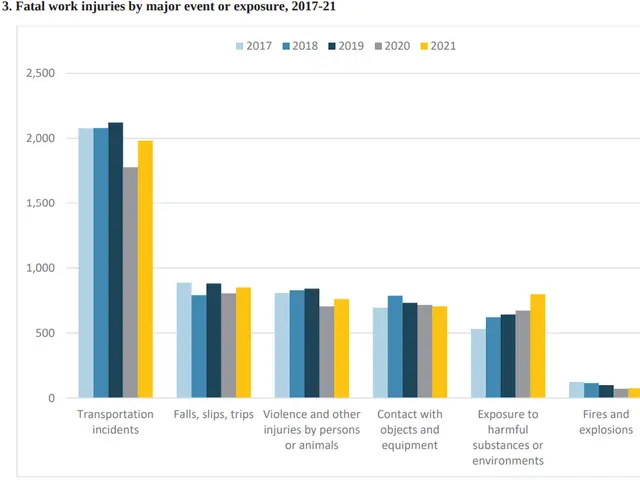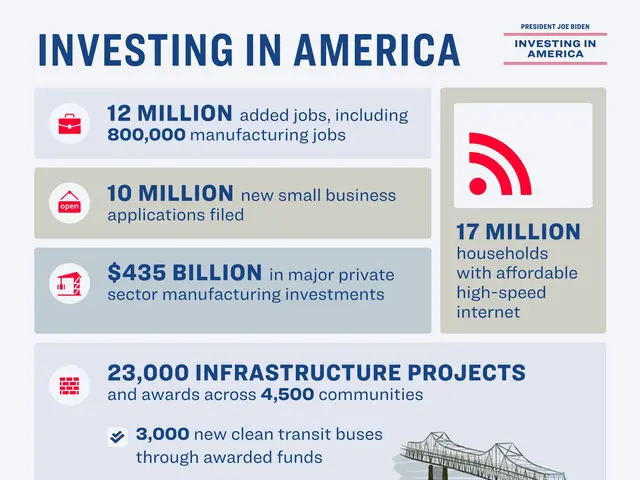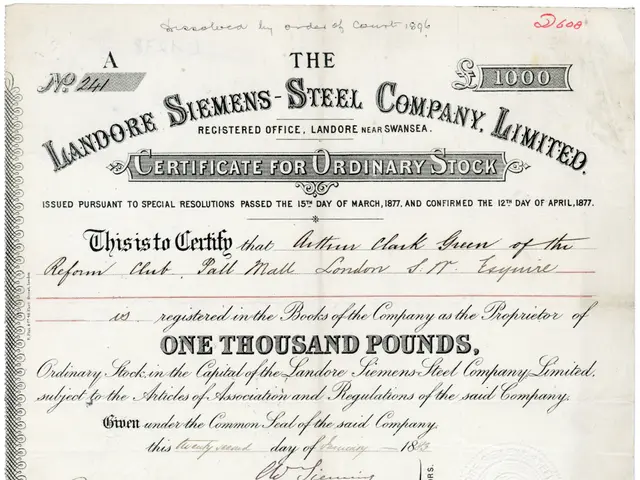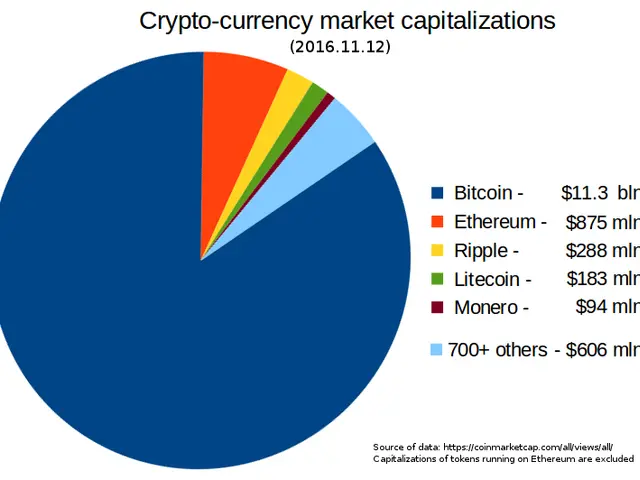US Tariffs: Indirect Effects on German SMEs Cause Most Concern
Insight
United States Tariffs on Imports Primarily Spark Concern among German Mid-Sized Businesses over Secondary Impacts - Small and Medium Enterprises (SMEs) in Germany express concern over potential unintended impacts of US tariffs
US tariffs may pose significant indirect challenges for German small and medium-sized enterprises (SMEs), particularly in sectors such as metal, automotive, and machinery. These impacts transcend immediate financial burdens, influencing business sentiments, investment plans, and strategic decision-making.
Key Indirect Consequences
1. Rising Business Anxiety and Economic Slowdown
Over half (60%) of German companies worldwide express trepidation about fallouts from US trade policy, with that figure ascending to 69% post recent policy updates. In the US itself, 85% of German firms anticipate constraints due to US trade measures, the highest global proportion [2]. The murky, protectionist environment of US tariffs wears away at confidence in global market mechanisms, dampening economic activity and deterring long-term strategies [2].
2. Slow Investment and Project Delays
Just a quarter (24%) of German companies in North America still plan to boost investments, down from 37% previously. Nearly a third (29%) now contemplate slashing budgets or deferring new projects [2]. SMEs, in particular, have become more cautious, carefully examining all potential investments and holding back on new initiatives due to heightened risk and unpredictability [2].
3. Supply Chain Pressures and Increased Stocking
Some sectors, like industrial manufacturing, have seen increased factory orders as firms rush to stockpile goods in anticipation of tariff increases. This temporary surge can cause inventory gluts and subsequent production cuts if demand fails to keep up [1]. Tariffs can also create disruptions within established supply chains, compelling SMEs to quest for alternative providers or shoulder higher costs, potentially eroding competitiveness and profit margins [2].
Sector-Specific Insights
| Sector | Key Indirect Consequences ||----------|------------------------------------------------------------------------------------------------------------|| Metal | Disrupted supply chains, heightened costs of raw materials, and decreased investment appetite for new plants or expansions. || Automobile | Cautious investment in new technologies and facilities, potential loss of US market share, and increased logistics expenses. || Machinery | Delays in machinery orders and upgrades, as SMEs hesitate to commit to capital-intensive projects amid unstable trade conditions. |
Synopsis
US tariffs on German exports create a climate of uncertainty that leads to reduced investment, project delays, and cautious business behavior, especially among SMEs in the metal, automotive, and machinery sectors. Indirect effects may pose a greater long-term threat to competiveness and growth than the tariffs themselves [2][1].
- In light of the US tariffs, there exists a noticeable increase in business anxiety among EC countries, leading to a potential economic slowdown, particularly for German SMEs.
- As a result of these tariffs, investment plans by German companies, especially those in North America, are experiencing a decrease, with many considering budget cuts or postponing new projects.
- With the potential increases in tariffs, certain sectors like industrial manufacturing are stockpiling goods, causing inventory gluts and production cuts if demand does not match the supply.
- The automotive sector, in particular, is becoming more cautious in regards to investments in new technologies and facilities, while also facing the threat of losing market share in the US.
- The metal sector is experiencing disruptions in supply chains, heightened costs of raw materials, and a decreased appetite for new plants or expansions due to US tariffs.







